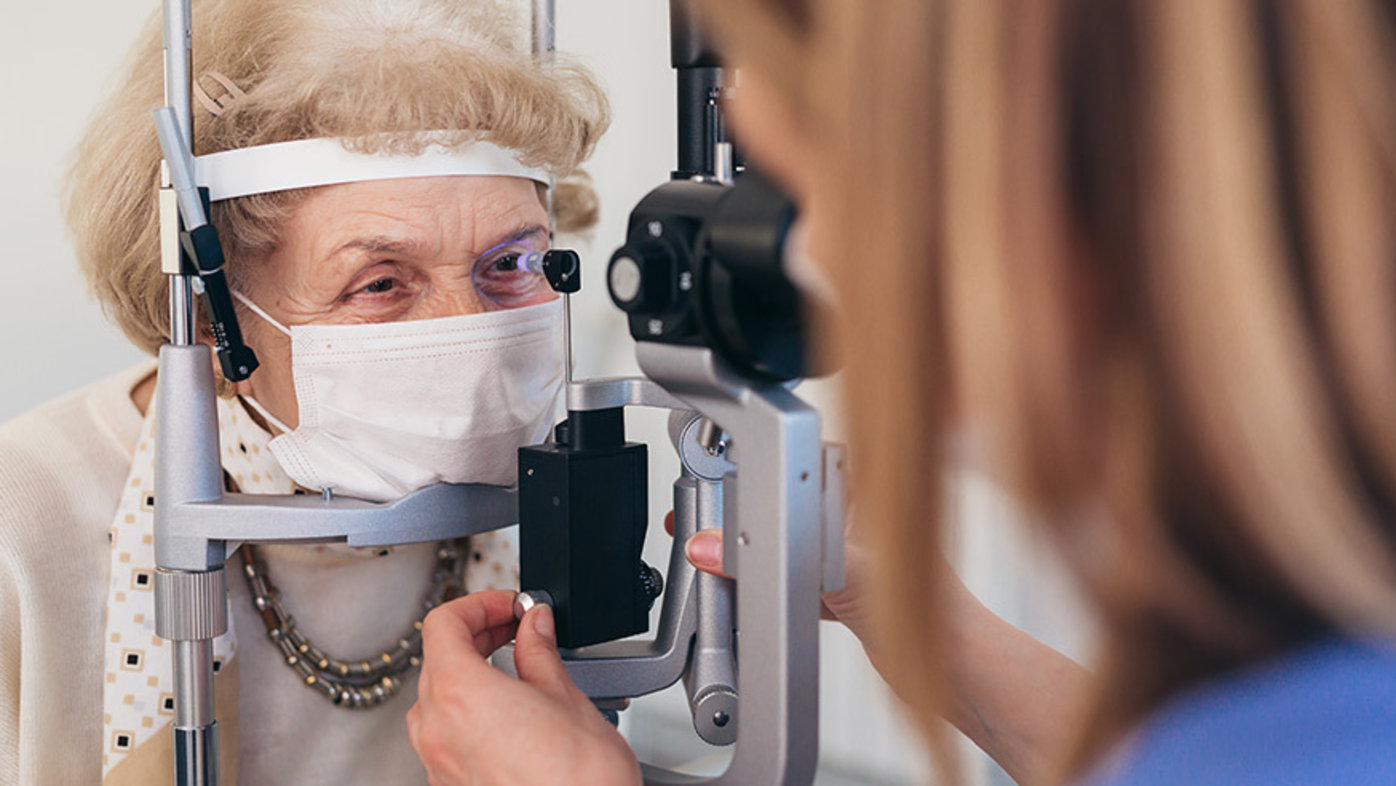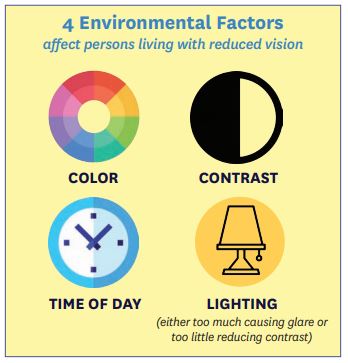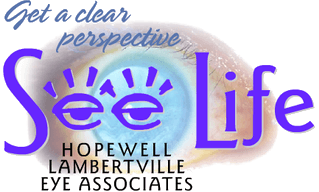Getting eye exams, wearing glasses reduces risk of developing dementia.
A new study says that getting an annual eye exam or wearing glasses or contacts can reduce the risk of dementia.


Gracia Lam https://www.nytimes.com/2021/09/06/well/live/vision-loss-brain-health.html
JAMA Ophthalmology found that people with untreated visual impairments have a higher chance of developing dementia due to the lack of proper neuro-stimulation.
Overall - 12% of participants showed signs of the illness (dementia). For people with impaired distance vision that number rose to 20%
Participants who have impaired up-close vision, 21% showed signs of dementia. For those with more severe visual impairments or who blind, they are 33% more likely to show signs of dementia.
A growing number of people are being diagnosed with dementia every year, imposing an unprecedented strain on health services, families, and underserved communities worldwide. According to the Centers for Disease Control and Prevention (CDC), by 2060, 14 million people in the United States are expected to have Alzheimer’s disease.
As a result, researchers are working hard to find ways to prevent Alzheimer’s disease as well as other conditions related to memory loss. These preventative measures are referred to as modifiable risk factors, and a recent study reveals that visual impairment should receive more attention than it is already receiving.
Eye exam as part of Modified factors: These factors are not only related to proper exercise , nutrition, staying active, but a eye exam can find vision concerns that can potential identify risk factors such as retinal thinning, visual field loss (effecting mobility), refractive errors such as myopia, hyperopia and presbyopia yielding to the proper vision correction and reducing the risk of of dementia via proper neurological stimulation.
YOUR EYES ARE YOUR BRAIN - IT NEEDS TO BE PROPERLY STIMUALTED
The first thing that happens when we look out and view the world is that light enter our eyes and is processed into information that is sent to the relevant regions in our brains.
Your Eyes are the Brain: Per Researchers at MIT - 50% of the brain is dedicated to visual processing and as per the Journal of Behavioral Optometry, 80% of what we learn is obtained through visual processing of information. In fact, it’s been found that our brains rely on our eyes so much that our vision accounts for two-thirds of the electrical activity of the brain.
The brain is responsible for the information’s organization, interpretation, and conscious experience. Approximately For example, the sensors in our eyes are constantly taking in data from our surroundings, and our brain is responsible for interpreting that data, which in turn influences how we engage with the outside world. The process by which the brain interprets the images received from the eyes is called visual perception.
Both our vision and our brains undergo changes as we become older. Both of these are worthy of being taken into consideration. A reduction in the amount of visual information that is transmitted to the brain can be caused by conditions such as cataracts, glaucoma, or age-related changes in the retina or the macula, all of which are located in the rear of the eye.
The inability to take in adequate or accurate amounts of visual information can be a factor in developing cognitive and memory disorders and even dementia.
Alterations in the brain caused by Alzheimer’s disease or dementia, on the other hand, can modify how our brain processes visual input, which can alter our experience of the world and our capacity to understand it.
LACK OF PROPER SENSORY INFORMATION (VISION AND HEARING)
When you cannot see or hear properly the sense of Anxiety, bewilderment, and frustration leads to questionable behavior and actions due to the disruption of the perceived world around us.
The brain goes through a range of changes as a result of dementia, one of which is how well the eyes see and how the brain processes the information brought in by the eyes.
When seniors with Alzheimer’s or other forms of dementia exhibit peculiar behaviours, we might conclude that they hallucinate.
There is a chance that they will have hallucinations, but alterations could just as easily interpret their behaviour in their vision.
Nevertheless, watching this peculiar behaviour can be a source of great concern for us.
Learning about vision changes can help you understand why your senior loved one could be acting in such a way, which can alleviate your fears and worries and make providing care for someone with dementia a little bit easier.
How Does Alzheimer’s or Dementia Affect The Eyes?
Researchers believe that our sense of sight, hearing, and smell could be the key to diagnosing early Dementia and Alzheimer’s disease in its earliest stages, even before any symptoms manifest themselves. In the case of the eyes, the retinal nerve that emerges from the brain starts to become more constricted, and this is could be a sign that Alzheimer’s disease is beginning to develop.
Relation to proper visual and sensory stimulation and critical in maintain brain function. Our eyes can be considered an extension of the brain. The accumulation of beta-amyloid protein clumps in the brain is one of the earliest signals that a person may be showing signs of Alzheimer’s disease.

Image courtesy of Shannon L. Risacher, Ph.D., Indiana School of Medicine
They start to manifest anywhere from 15 to 20 years before the disease really manifests itself. The imaging of the brain, which may be quite pricey, is one method that can be used to identify these aggregates.
A few researchers measured the thickness of the retina, and they found that individuals who suffered from memory loss had a thinner retina compared to people who did not have any problems with their memories. This can be seen by OCT (Optical Coherence Tomography) and Visual field analysis performed by the doctors at Hopewell Lambertville Eye (www.seelife.net)
This ailment can also produce blurry vision in its early stages, which can affect your day-to-day activities by making what you see appear unclear or out of focus. If you’ve been diagnosed with this ailment, it’s imperative that you get immediate medical assistance. So, to see, there are several processes, the most important of which is the eye.
Having the ability to see requires a series of steps, the first of which is the eye. Next, the information received by the eye needs to be correctly processed by the brain. In addition to this, one’s thoughts, memories, and other senses all play a part.
Even if a person’s eyes are in perfect health, they may still have difficulties if their brain processes information incorrectly. Dementia alters a person’s perception of the world around them by interfering with their ability to process visual information. The situation becomes even more severe when there are issues with people’s health and ability to see.
Changes in Vision of People With Dementia
![]()
People rely on their cognitive abilities to decipher what they take in through their sense of sight when they observe something with their eyes. The person you care for must use their memories of previous experiences and their other senses to correctly interpret the visuals they encounter.
However, dementia and changes in vision usually happen simultaneously. Various factors and environment that effect vision can also a a more substantial effect on someone whom does not have a proper vision correction

Adapted from an AFA Care Connection Webinar. https://alzfdn.org/dont-overlook-alzheimers-affect-on-eyesight/
Summary - GET AN EYE EXAM
Prevention and treatment of current eye diseases are critical in the prevention of further vision difficulties. Therefore, regular eye exams prescribed by your optometrist are important. In addition, in order to catch vision disorders in the early stages, it is important to get regular eye exams.
In these exams , we can perform retinal function testing, visual fields and refraction to optimize visual capabilities while also assessing the health of the eyes for cataracts, glaucoma, macular degeneration and related systemic disease such as diabetes (a potential cause of early dementia and Alzheimer); relationship that some have called Alzheimer’s “diabetes of the brain” or “type 3 diabetes (T3D)”.
Finally, for those with dementia, keeping a healthy via good nutrition and active lifestyle is essential. Regular, safe exercise and a nutritious diet with plenty of fresh veggies and protein benefit general well-being and the eyes. And finally, properly stimulate the senses by maintain eye and hearing health - call Hopewell Lambertville Eye (www.seelife.net) for an eye health exam.
Hopewell 609-466-0055 Lambertville 609-397-7020
References
Images and citations from https://yourdementiatherapist.com/alzheimers-dementia/vision-problems/
Journal of Behavioral Optometry. Children’s Vision Care in the 21st Century & Its Impact on Education, Literacy, Social Issues & the Workplace: A Call to Action. Accessed August 10, 2018. https://www.oepf.org/sites/default/files/journals/jbo-volume-22-issue-2/22-2%20Zaba.pdf.
https://jamanetwork.com/journals/jamaophthalmology/fullarticle/2807125?guestAccessKey=35220a9e-e304-4ca1-a14e-c221ea092c34&utm_source=For_The_Media&utm_medium=referral&utm_campaign=ftm_links&utm_content=tfl&utm_term=071323
https://www.ncbi.nlm.nih.gov/pmc/articles/PMC7246646/
- https://www.alzheimers.org.uk/about-dementia/symptoms-and-diagnosis/sight-hearing-loss#:~:text=However%2C%20people%20with%20dementia%20can,problems%2C%20but%20have%20healthy%20eyes.
- https://dailycaring.com/dementia-and-eyesight-an-expert-explains-common-changes-and-behaviors-video/
- https://www.hebrewseniorlife.org/blog/dementia-alzheimers-and-eyesight-symptoms-and-how-help
- https://www.agingcare.com/articles/visual-changes-in-dementia-patients-205658.htm
- http://www.kadrmaseyecare.com/eye-health–care-blog/alzheimers-eye-sight-is-there-a-connection-alzheimers-brain-awareness-month
- https://www.prevention.com/health/health-conditions/a40514298/vision-loss-linked-to-dementia-study/
- http://www.kadrmaseyecare.com/eye-health–care-blog/vision-changes-with-dementia-alzheimers-and-brain-awareness-month
- https://www.scie.org.uk/dementia/living-with-dementia/sensory-loss/sight-loss.asp
- https://www.seniorlink.com/blog/what-alzheimers-has-to-say-about-your-eyesight
- https://www.homecareassistanceoshkosh.com/what-are-the-effects-of-dementia-on-vision-in-aging-adults/




